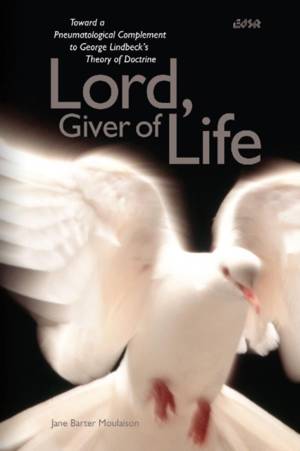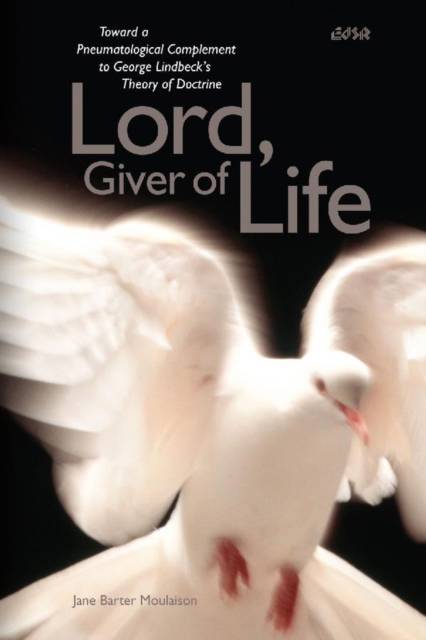
- Retrait gratuit dans votre magasin Club
- 7.000.000 titres dans notre catalogue
- Payer en toute sécurité
- Toujours un magasin près de chez vous
- Retrait gratuit dans votre magasin Club
- 7.000.0000 titres dans notre catalogue
- Payer en toute sécurité
- Toujours un magasin près de chez vous
Lord, Giver of Life
Toward a Pneumatological Complement to George Lindbeck's Theory of Doctrine
Jane Barter MoulaisonDescription
George Lindbeck once characterized postliberalism, which received its initial structure from his book The Nature of Doctrine, as an attempt to recover pre-modern scriptural interpretation in contemporary form. In Lord, Giver of Life: Toward a Pneumatological Complement to George Lindbeck's Theory of Doctrine, Jane Barter Moulaison explores the success of that effort through a close examination of Lindbeck's own theological contributions. Taking seriously the ecumenical promises of Lindbeck's writing (he was instrumental in advancing Lutheran and Roman Catholic dialogue throughout the 1960s, '70s, and '80s), this book brings Lindbeck's famous cultural-linguistic model of religion into dialogue with Christianity's theological forbearers: specifically, the Eastern progenitors of orthodox confession.
This constellation of theological voices--Lindbeck, his supporters and detractors, along with patristic theologians--is meant not only to test the viability of a religious model but, more importantly, to advance Lindbeck's project in ways that have not yet been pursued. Among the critical questions engaged are: to what degree can the excesses of modern theology be overcome by a return to premodern sources? What are the implications of a constructive pneumatology to the cultural-linguistic model? Does this complement address the critiques of postliberalism, particularly those that consider the role of human agency, rationality, and autonomy?
While Lindbeck recovers significant and forgotten elements of pre-modern biblical interpretation, the very formalism of his project sometimes obscures the theological underpinnings of premodern insights and practices. Through specific attention to Eastern Trinitarian theologies of the fourth century, this book exposes a rather persistent oversight within Lindbeck's recovery: namely, that alongside the regulative function of canon and doctrine, early biblical interpretation recognizes the role of the Holy Spirit in the appropriation of scripture, in the mission of the church, and in the defence of the gospel within the context of an unbelieving world. This book attends to these insights from the early churchs doctrine of the Holy Spirit in appreciative service to the cultural-linguistic model of religion.
Spécifications
Parties prenantes
- Auteur(s) :
- Editeur:
Contenu
- Nombre de pages :
- 180
- Langue:
- Anglais
- Collection :
- Tome:
- n° 32
Caractéristiques
- EAN:
- 9780889205017
- Date de parution :
- 19-12-06
- Format:
- Livre relié
- Format numérique:
- Genaaid
- Dimensions :
- 157 mm x 234 mm
- Poids :
- 362 g

Les avis
Nous publions uniquement les avis qui respectent les conditions requises. Consultez nos conditions pour les avis.






